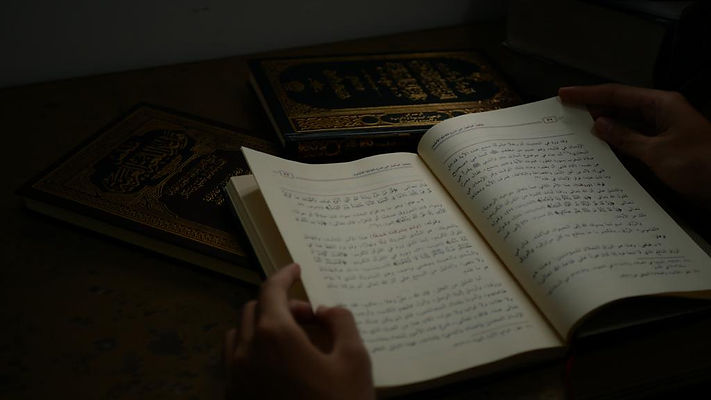Course Title: Islamic Jurisprudence: The Pillars of Islam
Course Description:
This course is designed to provide students with a deep understanding of Islamic jurisprudence (fiqh), with a focus on the pillars of Islam. Students will explore the meaning of jurisprudence, the legal maxims, the rulings related to ritual purification (طهـارة), prayer, and all aspects of worship. They will learn how to navigate and fulfill lifelong religious duties, bringing knowledge and confidence to their worship of Allah ﷻ.
Instruction will make use of classical text and their respective commentary traditions. Students will learn detailed rulings on purification and daily prayer, and examine some of the textual proofs for those rulings. The course will cover a range of topics, including the methods, instruments, and aims of purification, types of water, ablution, wiping on leather socks, purification while wearing casts, the ways of preparing for prayer, the requirements for valid prayer, the importance of correctly reciting al-Fātiĥah, Friday and Eid, funeral prayers, prayer while sick or while traveling, what may invalidate prayer, and exceptional situations.
In addition, students will explore the methods, instruments, aims, and objectives of zakat, fasting, and hajj, along with an examination of some of the textual proofs for those rulings. The course will cover the properties on which zakat is obligatory, livestock, currency, wealth, trade goods, inventory, gold and silver, zakāt al-fiţr, and the distribution of zakat. With regard to fasting, students will examine the conditions obligating the fast, things that invalidate the fast, and matters regarding spiritual retreat. Lastly, with regard to hajj, students will learn the full procedure of hajj, including the conditions obligating hajj, the integrals of hajj and umrah, what to do and what not to do during hajj, and the question of expiation.
Throughout the year, students will keep a journal, participate regularly in class discussions, and prepare written assignments. They will also take midterm and final exams. The course strongly emphasizes the students’ ability to memorize, recall, and apply key concepts related to the pillars of Islam. Upon completion of the course, students will have a deep understanding of the pillars of Islam and be equipped with the knowledge to navigate and fulfill lifelong religious duties. This course is suitable for anyone interested in Islamic jurisprudence, regardless of their background or level of knowledge.
